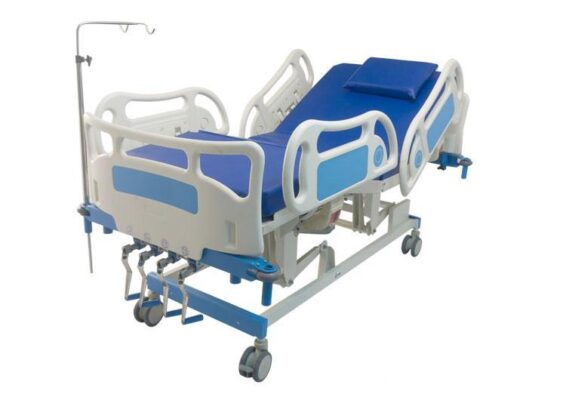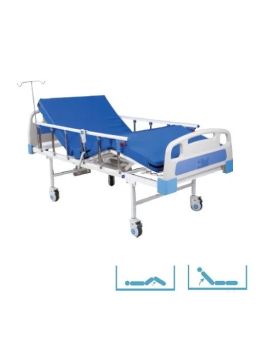Understanding Depression and The Importance of Geriatric Counselling
Thank you for reading this post, don't forget to subscribe!What Is Depression?
Depression is a mood disorder illustrated by https://www.emergencycaresolution.com/, irritability, hopelessness, and loss of interest in all the activities. It impairs one’s ability to concentrate, poses difficulties in completing everyday tasks, and often leads to social withdrawal.
Depression also results in constant fatigue, changes in appetite, and disruptive sleep patterns with either an increase or decrease in both.
It is essential to observe that depression is a mental illness and living with depression can be challenging for the person undergoing it. Only a licensed mental health professional can conduct psychological evaluations to diagnose.
With the right treatment, depression can be treated to enhance well-being and quality of life. An integrated form of treatment includes medications, counseling, and lifestyle management.
Symptoms of Depression in Older People
At least one in twenty older adults have a major depressive disorder, and two to three times as many have sub-threshold depressive symptoms. Although they occur more in people who are weaker, they affect countless people in their 60s and 70s. These problems are sometimes referred to as geriatric syndromes, and they affect the health and quality of life in older adults.
Apart from being deeply distressing for the person and their family and friends, https://www.emergencycaresolution.com/ is also associated with increased dementia risk, worse day-to-day functioning, increased contact with health care professionals, and suicide.
The symptoms of depression in elderly people are:
- Loss of interest in activities
- Pervasive low mood
- Feeling guilty or worthless
- Observable slowing or agitation of movements
- Visible change in appetite, weight, or sleep
- Thoughts of death or suicide
- Tiredness and poor concentration
Causes Of Depression in Older Adults
- Age:Discrimination based on a person’s age may affect them in many ways. This kind of discrimination is called ageism and involves prejudice against people based on their age. Ageism is frequently cited in workplace situations and may lead to forced retirement, difficulty finding employment or promotions.
- Abuse:Physical or emotional abuse can make a person more vulnerable to depression later in life.
- Conflict:Depression in someone who has biological vulnerability may result from personal conflicts or disputes with family members or friends.
- Certain Medications:Some medicines, such as anti-viral drugs, acne medicines, corticosteroids, etc., can increase the risk of depression.
- Death of a loved one: Sorrow or grief after the loss or death of a loved one raises the risk of depression.
- Gender:The hormonal changes that women go through at various times of their lives play a key role in causing depression in women. Research also shows that women are twice as more likely to get depressed than men due to these hormonal changes.
- Genetics:Genetics may play a considerable role in how likely you are to get depressed. But they may not always be the case. A person can have depression or anxiety even if no one else in your family does. This indicates that there is a slight chance of a genetic link to depression.
- Major events:Depression most commonly occurs due to stressful life events such as losing your partner or any close family members or friends, losing job or income, moving to a new place, retiring, and getting divorced.
- Other personal problems:Problems such as social isolation due to mental illnesses and disorders or being cast out of a family contribute to the risk of developing clinical depression.
- Serious illnesses:Depression also occurs due to severe or chronic diseases and delayed recovery and trauma.
It may be difficult for some older people to face the transition to old age, deal with new weaknesses or medical conditions, or not participate in social activities due to immobility and balance issues. It may also be challenging for some people to face mortality, especially when friends, family members, or spouse expires. In such situations, they may start experiencing depression or loneliness.
Why is Geriatric Counselling Important?
In the present day and era, counseling is regarded by most older adults as an important form of treatment. Many aged people prefer to go for counseling to seek treatment for mental health issues that are not only related to age and illness but also their well-being.
Counseling can help elderly people who deal with the transitions of aging handle their emotions by fighting depression caused due to illness, loneliness, death of the spouse or family member, isolation, dependency, and anxiety. Geriatric counselors recognize the illness and provide proper counseling to assist them in developing positive mental health and well-being, thus restoring their self-confidence and independence. Apart from just the patients, counselors also assist family members and https://www.emergencycaresolution.com/ in helping them deal with these issues.
Promoting The Health of Older Adults
https://www.emergencycaresolution.com/ provide many effective treatment options, including medical, psychological, and social therapies. This is because depression is harder to detect as symptoms are wrongly attributed to physical illness or dementia.
A health care professional can help older adults become accustomed to these changes and distinguish them from serious health issues such as Alzheimer’s disease or Parkinson’s disease.
Encouraging active and healthy aging may improve the mental health of older adults. Providing professional senior care services, security and social support, maintaining good mental and physical health, and participating in community programs may all help meet the needs of the elderly population.
Emergency Care Solution:
Having seen all the ups and downs in life, now it is time to sit back and relax. Our Geri care program provides professional https://www.emergencycaresolution.com/ who can help you overcome mental health issues and regain your cognitive stability and well-being.
Reach us out on 9739354555
Or write to us at: Contact@emergencycaresolution.com



